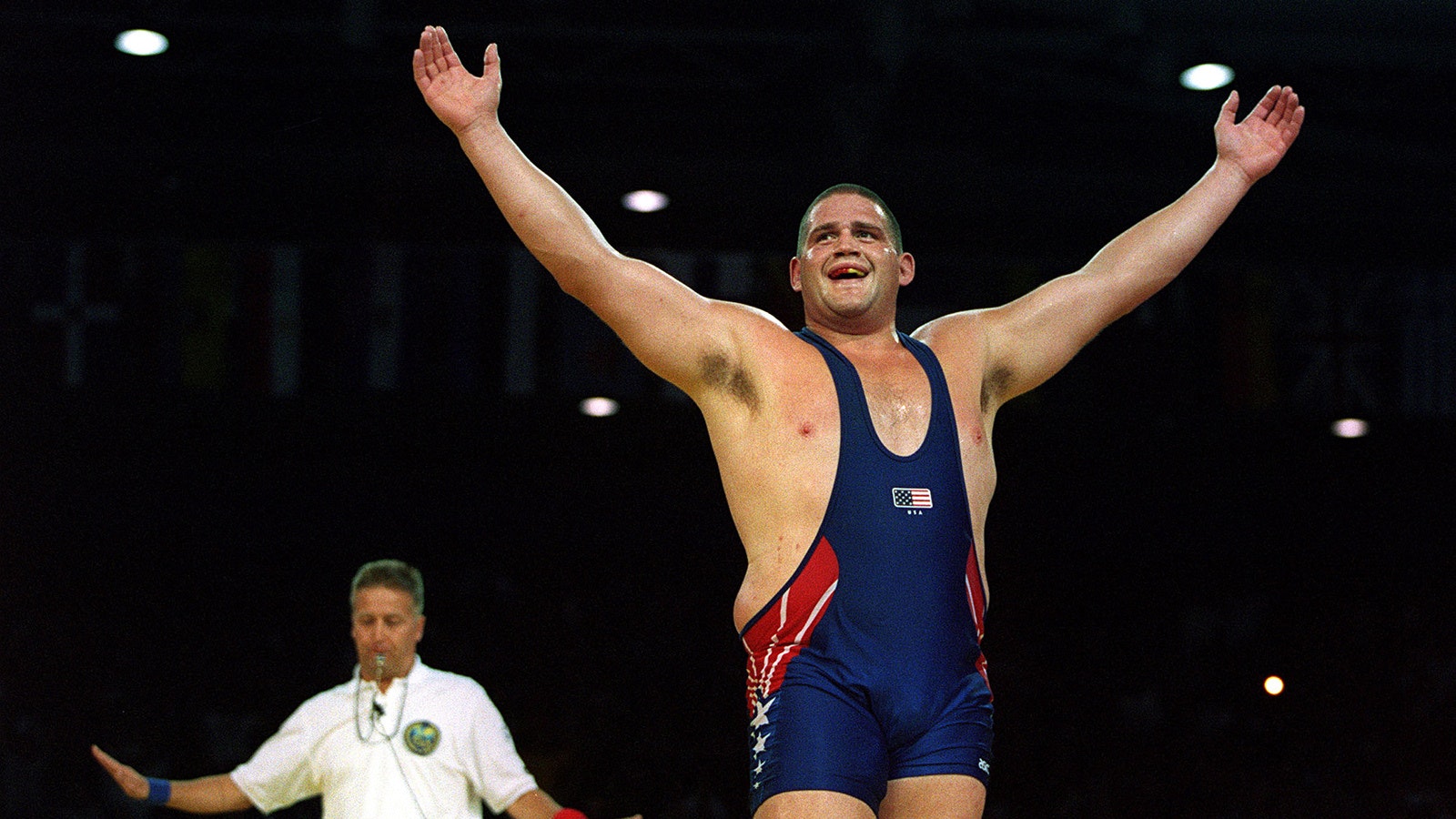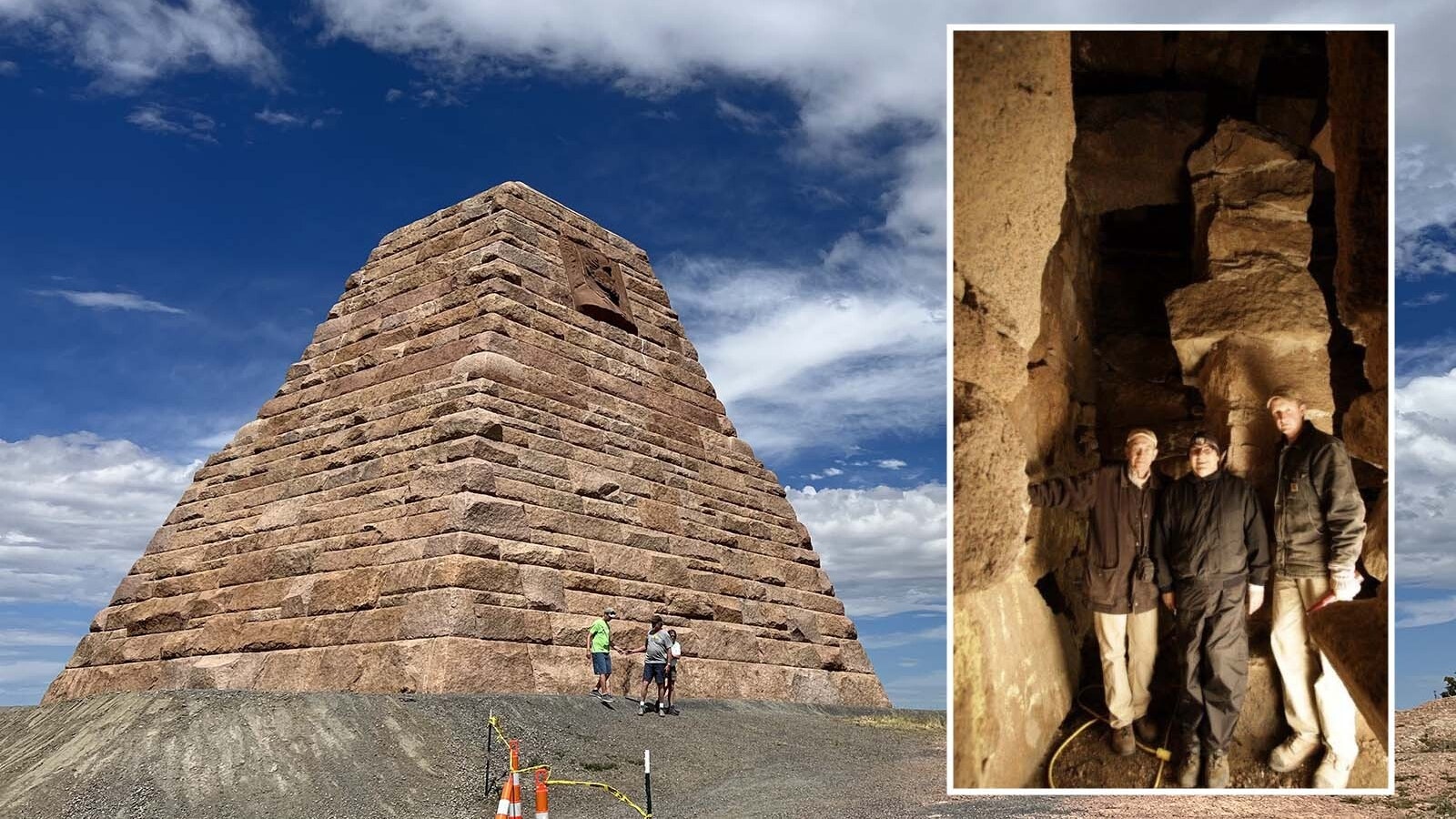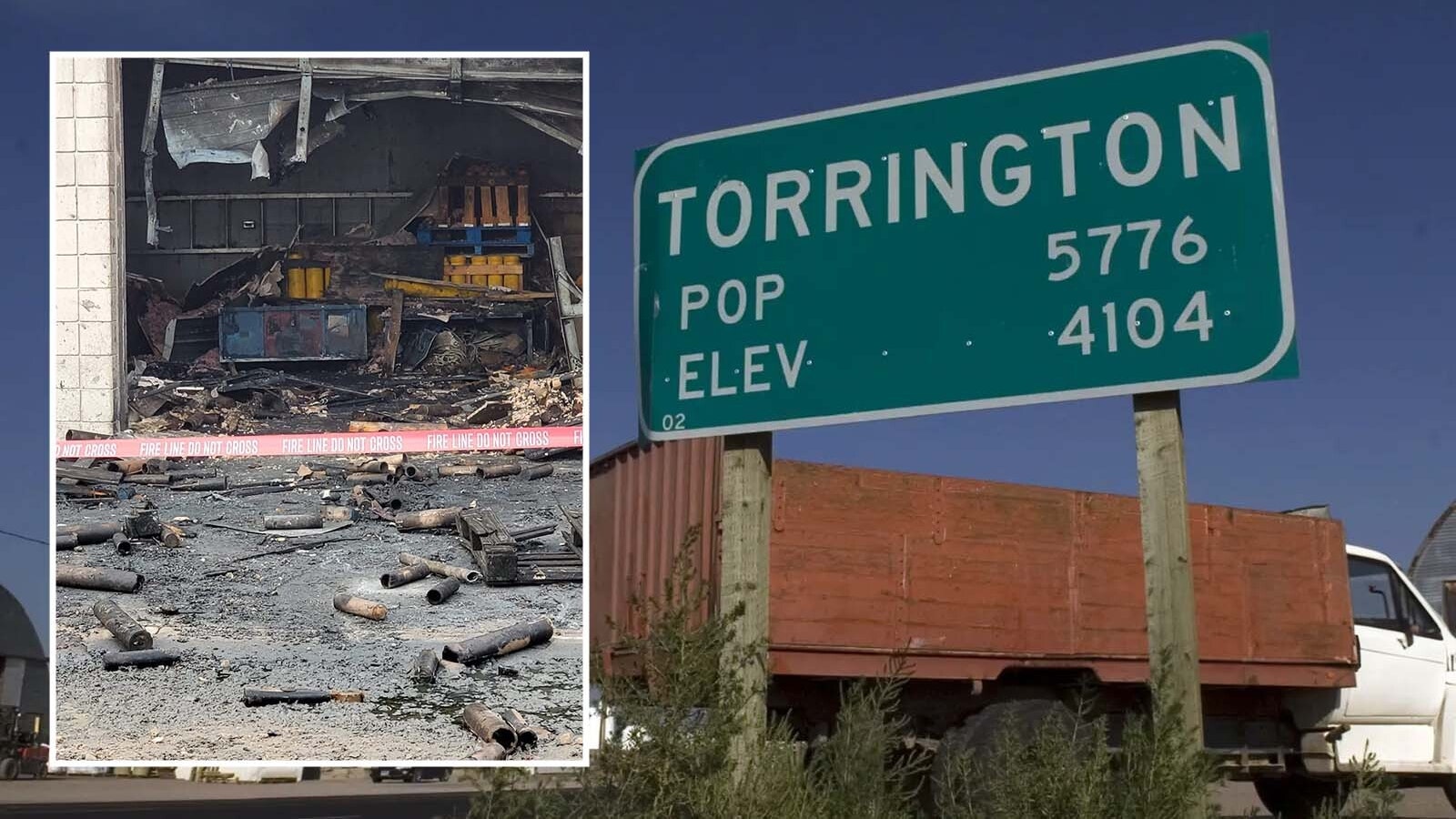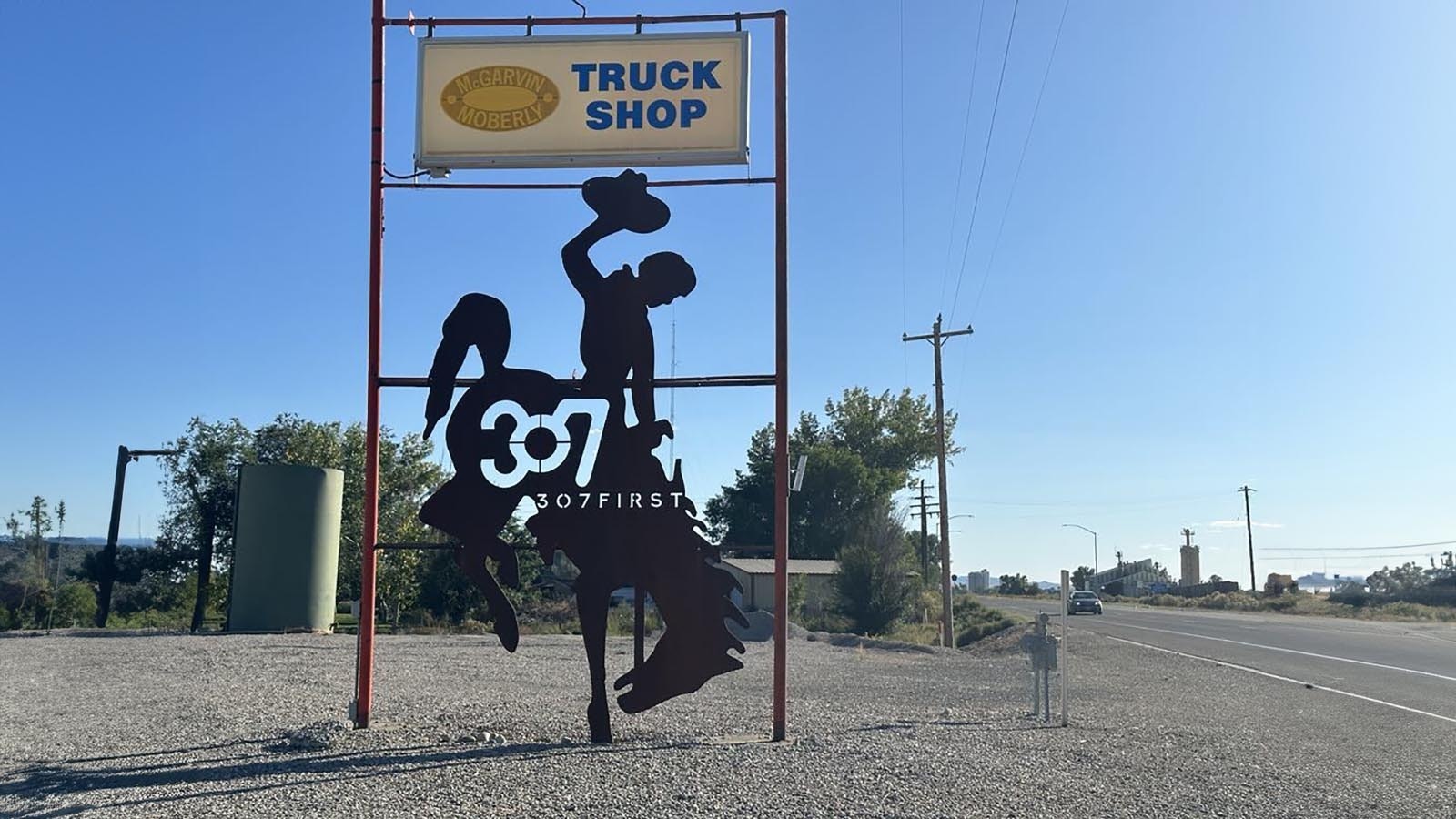Rulon Gardner has had a lifetime of being told he wasn’t good enough, wasn’t talented enough and that his lofty goals were out of reach.
He’s prepared to hear an encore of the same, along with another reason to doubt the 2000 Olympic gold-medalist: He’s too old.
That’s because the 51-year-old former Olympic Greco-Roman wrestling champion is back on the mat and in the gym training to make the 2024 U.S. Olympic team.
His message to the naysayers who will tell Gardner what he’s been hearing his whole life? “Bring it on.”

Not A Publicity Stunt
“This is 100%,” he told Cowboy State Daily about his intention of making the 2024 games. “I’m doing everything I can within my power to represent America, represent myself.”
Gardner said he’s been training for the past five months and is ramping up his workouts to qualify for the 2024 Summer Olympics in Paris.
The difference between now and when the two-time Olympic medalist (he won Bronze in 2004) first wrestled in the games two decades ago is difficulty in finding other top wrestlers to work with on the mat.
“My problem now is trying to find training partners,” Gardner said. “I’m now 51 years old calling out 21-, 22-year-old kids.”
While a previous attempt at a comeback in 2012 wasn’t successful, the Wyoming born-and-bred grappler says he feels great and is on track to make a run at the U.S. Olympic team.
By the time the 2024 games roll around, he’ll be 52.
“The old Rulon is back,” he said, no pun intended. “There’s no reason why I can’t go out there and represent myself and America. I had a little exhibition recently … and I can tell the old Rulon’s coming back.”
Back To His Roots
In many ways, trying to make a comeback while old enough to be the father of most of his competition is a metaphor for Gardner’s life.
Growing up on a dairy farm around Afton, Wyoming, the youngest of nine children, Gardner said he learned early the value of hard work. And not just physical labor.
“I had a learning disability, and I was never going to graduate high school,” he said about what he was always told. “Then I was never going to graduate college, I was never going to the Olympics.
“I was the guy who was never going to do all these things. But I’ve done them, and that shows everybody the way.”
Even as a wrestler, Gardner admits he was never the most talented or gifted athlete on the mat. In fact, he didn’t win a high school state championship until his senior year at Star Valley High School.
That’s because his brother Reynolds, a year older, was always there.
“He beat my ass every day until my junior year,” Gardner said. “But all that adversity makes you tougher.”

Wyoming Work Ethic
It’s a tenacious Wyoming work ethic that Gardner credits for his successes. That, and valuing the lessons learned through failure.
“That’s the pride we have in Wyoming,” he said. “Being from Wyoming, we don’t back down from nothing. You may not win, but when it’s over, they’re going to know they’ve gone through a battle.
“You chisel steel out of hard work.”
He said he wants to be an example for younger wrestlers and others in the Cowboy State.
“I just want to make Wyoming proud,” he said. “Wyoming’s the best state in the union.”
Now living in St. George, Utah, Gardner travels around the United States to train with top-level wrestlers willing to work with him.
He also maintains a routine between his job in real estate and insurance, and working out – heavy on gym time.
“I’m in the gym every day twice a day and doing everything I can,” he said. “I’ll usually go into work, then hit a noon workout, then go back in the afternoon and wrestle if I find a training partner, the in the evening I lift weights and do cardio.”
The work is paying off, he said. Gardner has historically struggled with his weight, but said he’s down to 330 pounds and not far off his target of 300. He was at 286 when he won Gold in 2000 as a super heavyweight.
Another Olympic Miracle
While Gardner cemented his U.S. Olympic and American sports legacy at the 2000 Sydney, Australia, summer games, the seeds were planted decades earlier.
Gardner said he recalls watching on television – along with most of the nation at the time – the 1980 U.S. Olympic hockey team upset the “unbeatable” Russians.
“I was in front of our TV in our house growing up in Afton. I was 9 years old and watched America beat the Russians,” he said.
Like the 1980 hockey team, Gardner said that, “My whole life they told me I shouldn’t be out there.”
Remembered as “The Miracle On Ice,” the 1980 hockey team’s path was similar to Gardner’s.
He also upset an “unbeatable” Russian in a match now remembered as “The Miracle on the Mat.”
On and off the mat, Gardner didn’t measure up to Aleksandr Karelin, the “Russian Bear.” At 33, Karelin was the standard of Greco-Roman wrestling. Going into the Sydney games, Karelin hadn’t lost a match in 13 years, and hadn’t even given up a single point in six years.
And like the 1980 hockey team, which the Russians crushed 10-3 in an exhibition game just before the Olympics, Gardner was dominated by Karelin in an international match in 1997.
And Karelin didn’t just beat him, Gardner said. He dominated the young Wyoming athlete.
“He threw me on my head three times and broke three vertebrae in my neck,” he said. “That was in 1997, and he beat me 5-0.”
But for nine minutes on Feb. 27, 2000, Karelin was the second-best Greco-Roman wrestler on the planet.
As his family, friends and countrymen watched on television half a world away, Gardner overpowered the Russian Bear. And as the match wore on, Karelin was visibly frustrated by his opponent’s stamina, strength and technique.
Gardner smashed the first intimidating mystique of the Russian machine by scoring on him in the second period. Then he held out for the 1-0 win.
The young Wyoming dairy farmer who had been told he couldn’t do things his whole life had won Olympic gold. He would return and win a bronze in the 2004 games.
The victory “wasn’t because I was better than him,” he said. “You find ways to succeed. I had a strategy, philosophy and a skillset. I had the cardio from the dairy farm working from before sunup. That’s the mental toughness.”
He said it was easy to understand why Karelin had already won many of his matches before they started: intimidation.
“And if you looked at him, it’s very hard not to be intimidated,” Gardner said. “I wasn’t that good, but guess what? I found a way to win.”
That why he said he believes “everybody can be an Olympic champion. It’s what you put into it.”


A Survivor
In the years since that historic win, Gardner’s journey of survival has continued. Now a known name, he’s made headlines off the mat as well.
Two years after beating Karelin, Gardner nearly died of frostbite after becoming lost while snowmobiling in the Wyoming wilderness. In 2007, he survived when the single-engine plane he was in crashed into Lake Powell 200 yards from shore in 44-degree water.
His life story is peppered with such incidents. In his younger years, he’s recounted falling off trucks and even once was shot with an arrow. In a 2007 story, GQ magazine dubbed Gardner “The Man Who Wouldn’t Die.”
For The Sport
All those life experiences have led Gardner to where he is today, planning to wrestle in the U.S. Nationals in April, then the world team trials in June.
His motivation now is different from when he was an Olympian in 2000 and 2004, Gardner said. While he intends to perform at a high level, his goal isn’t medals or glory.
He wants to give back to the sport of Greco-Roman wrestling. If that means being an old man wrestling athletes half his age while being mocked by analysts, he’s OK with that.
“But if I were to win a medal at 52 years old, what would that mean to the sport?” he asked. “I don’t want to wrestle, that’s not why I’m doing this. I’m doing this to bring light to the sport.”
Gardner said his motivation is “much deeper than I just want to go out and wrestle. … I want to get the younger generation to see how great Greco-Roman is.”
He wants American Greco-Roman wrestling to grow and flourish, which it isn’t now.
“American athletes are not getting the financial support and other support they deserve,” he said. “We’ve got to change the trajectory.”
The way he knows how to do that is “to get the Wyoming back into the sport of wrestling.”
Part of that Wyoming way of doing things is to be a little brash and out-of-the-box, he said.
“If they don’t listen to you voluntarily, you’ve got to shake the tree up a little bit,” Gardner said.

Still Motivated
So Gardner expects the cycle to begin again: He’s not good enough, will embarrass himself and the sport and doesn’t have any business attempting a comeback.
“It’s coming,” he said of the criticism. “‘You can’t make the team, you’re too old.’ Guess what? I’m not going out to wrestle and just embarrass myself. I won the worlds with a broken hand, a broken rib and a partially separated shoulder.”
“Bring it on,” he said.
“I’ll be 52 at the Olympics, so if you don’t think I can do it, thank you for motivating me,” Gardner said. “Those people who told me you couldn’t are those who motivated me.”





